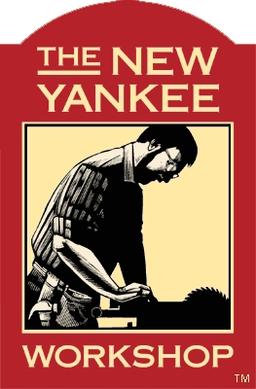I was cleaning out an old bookshelf and came across this 2003 Grizzly catalog. Coincidentally, I’d just received a 2023 mailer. I was shocked by the increases in price.
Some highlights:
Standard 14" band saw: $375 vs. $800
Standard 6" jointer: $400 vs. $900
4-piece Bessey K-body clamp set: $150 vs. $350
I know nothing about how inflation works, so I’m not sure whether this tracks with the price of bread or whatever, but it was eye-opening.
Now look at the price of wood, I literally can’t afford to do woodworking any more.
A basic 8 by 4, quarter inch sheet of ply now costs over 20 quid! Jesus wept
Not inflation it is greedflation, when companies make record profit and the CEO’s are paid 1000 times their employees with 8 digit bonuses, stocks continue to grow and stay positive, that is not inflation it is greedflation.
Pretty sure printing trillions of dollars and pushing it into the economy had more to do with it
So what caused the inflation in the entire world? Surely a couple of stimulus checks for people in the United States of America couldn’t cause worldwide inflation. I know the us is a big deal, but… they don’t control the entire worlds economy, right?
The stimulus contributed about 3% toward US inflation. Yet inflation was 7% YOY last year. I’m no economist, but it doesn’t seem that you’ve got correct information here. Where are you getting the information that us stimulus checks caused worldwide inflation?
-
Supply Chain Disruptions: Issues in the supply chain, like delays in production or transportation, can lead to shortages of goods. When supply is limited, and demand remains constant or increases, prices tend to rise.
-
Increased Demand: When consumer demand surges, especially for certain goods or services, it can drive up prices. This can happen due to economic recovery, changes in consumer behavior, or specific events (e.g., a surge in demand for home office equipment during the pandemic).
-
Global Economic Conditions: Global events and economic conditions, like changes in oil prices or fluctuations in currency exchange rates, can impact the prices of imported goods, which in turn affects inflation.
-
Monetary Policy: Central banks can influence inflation through their monetary policies. When they lower interest rates or increase the money supply, it can stimulate spending and potentially lead to inflation.
-
Fiscal Policy: Government actions, including stimulus measures and public spending, can also impact inflation. An increase in government spending, like stimulus checks, can boost demand and contribute to inflation.
-
Wage Increases: Rising wages can lead to higher production costs, which may be passed on to consumers in the form of higher prices.
-
Expectations: If people anticipate future inflation, they may adjust their behavior, expecting prices to rise. This expectation can become a self-fulfilling prophecy, as businesses and consumers act in ways that drive prices higher.
-
Commodity Prices: The prices of commodities like oil, metals, and agricultural products can affect production costs and, subsequently, consumer prices.
All of these things combined have effects on inflation. But I believe the way the central banks and government handled things made it worse for all of us. There is some obvious greed involved, however, that is never going away. People will be shitty forever.
Was this the output of a chatbot?
You going to answer the points being addressed?
Why would I respond to a bunch of vague generalizations about how inflation works written by an LLM that doesn’t even have access to information from the last few years?
-
Nobody has extra cash in their pockets so where did all that printed money go…?
They spent it… Which caused inflation. COVID money
It was a way to transfer money from the lower/middle class to the already wealthy elite. Notice how every big industry since Covid came has had “record profits”?
I’m not denying that either. Either way, it’s the government and the federal reserves fault.
When you give people a bunch of money they’re going to spend it. And all the businesses made record profits. Also, factor in supply and demand and prices go up. Shortages make things go up.
Don’t worry though, this house of cards will hopefully fall down soon enough and we can maybe get some sanity back into the monetary system
It’s capitalisms fault. The workers should own the means of production, not some retarded nepo baby born to be a ceo.
Thanks Rishi, glad you could clarify that for us
Anytime bud
At those prices, shop-built bandsaws and clamps may come back into fashion (I can’t recall ever seeing a recipe for a shop-built jointer, though).
Mattias Wandel has homemade jointer plans, and a lot more.
He was the one I was thinking of with the bandsaws. I’d forgotten he’d done a jointer.




